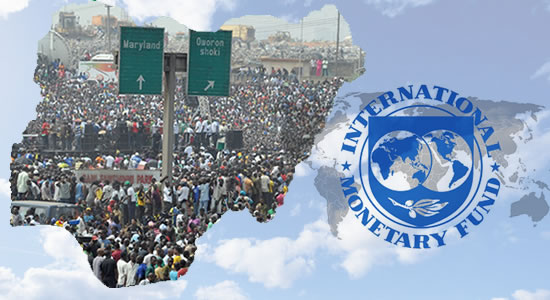The International Monetary Fund (IMF), on Monday said Nigeria and other Sub-Saharan countries would grow their economies by an average of 3.4 per cent in 2018, from 2.8 per cent in 2017. IMF’s country Senior Representative, Amine Mati, said this during the public presentation of the Spring 2018 Issue of the Sub-Saharan African Regional Economic Outlook (REO) in Lagos.
The theme of the presentation was, “Domestic Revenue Mobilisation and Private Investment.”
Mr Mati said about two-third of the countries in the region could experience the growth riding on the back of stronger global growth, higher commodity prices and improved capital market access.
The IMF country representative, however, said on current policies, average growth in the region was expected to decline below 4 per cent over the medium term.
“Across countries, economic outcomes are far from uniform. Oil exporters are still dealing with the legacy of the largest real oil price decline since 1970 with growth well below past trends and rising debts,” he added.
He said there was need for prudent fiscal policy to rein in public debt, while monetary policy must be geared toward ensuring low inflation.
He advised the countries to also continue to pursue structural reforms to reduce market distortions to increase private investment.
Mr Mati said this would strengthen revenue mobilisation to give governments the means to invest in physical and human capital as well as social infrastructure.
He, however, said domestic revenue mobilisation was one of the most pressing policy challenges facing sub-Saharan African countries.
According to him, nearly all African countries are seeking to raise revenue to make progress toward their sustainable development goals while preserving fiscal sustainability.
“Despite substantial progress in revenue mobilisation, sub-Saharan Africa was still one of the regions with the lowest revenue-to-GDP ratio,” he said.
The Chief Executive Officer of the Nigeria Economic Summit Group (NESG), Laoye Jaiyeola, said there was an increase in the micro-economic stability as the inflation rate continued to decline.
Mr Jaiyeola said this had resulted in a drop in interest rate which in turn would have a positive impact on private sector activities.
He added that government still needed to boost the framework around Public Private Partnership to scale up the operation of the private sector.
He commended the government on its several efforts to ensure that the ease of doing business in the country continued to improve.
Mr Jaiyeola suggested outright privatisation and concession of public assets to reduce government’s burden and to block leakages.
He also suggested leveraging on technology to block such leakages.



















